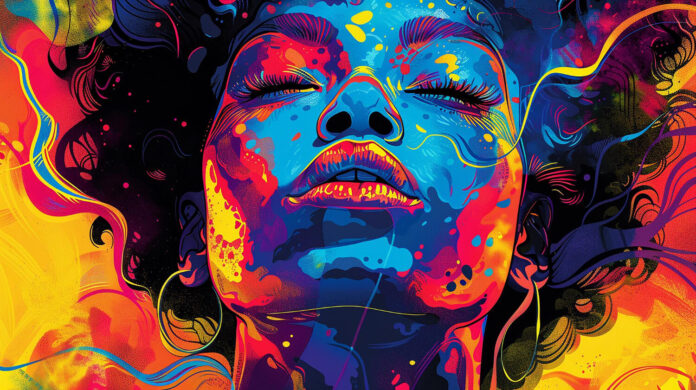The modern world offers a plethora of pleasures and intense experiences, yet many find themselves losing satisfaction in life. In recent times, psychedelic substances have sparked interest not just for their recreational use but also for their potential therapeutic benefits. Researchers explore how these substances can enrich lives by providing profound and diverse experiences.
The aesthetic journey of psychedelics
One of the most compelling aspects of psychedelics is their ability to impart deeply aesthetic experiences. Those who partake often describe altered perceptions where ordinary sights become extraordinarily beautiful. This phenomenon is highlighted through anecdotal evidence. Participants in clinical trials recount perceiving colors in more vibrant and vivid ways than they had ever seen before.
This surge of perception goes beyond mere enhancement of visual stimuli; it extends to an immersive involvement in one’s surroundings. Individuals find themselves completely engrossed, appreciating the minutiae of their environment with newfound intensity. Such encounters suggest that psychedelics could offer intrinsic value purely from the perspective of heightened aesthetic appreciation without necessarily tying into therapeutic outcomes.
A life rich with diverse experiences
Psychedelics are often compared to helicopter rides that effortlessly provide panoramic views, bypassing the arduous trek to scenic heights. While some argue this shortcut detracts from the authenticity of the experience, others believe that the sheer diversity and richness these experiences offer justify their use. The concept centers on living a life filled with varied and interesting moments, enhanced by the unique consciousness changes induced by psychedelics.
These moments contribute significantly to what researchers call a ‘psychologically rich life’. Emotions felt during psychedelic trips are vast and deep, adding layers to personal experiences. A diversified emotional palette might help individuals appreciate life more fully, fostering a sense of psychological enrichment otherwise absent from routine existence.
The contrast with conventional meaning sources
Traditional sources of purpose, such as faith, family, and community, have lost some robustness due to cultural shifts and societal changes. Psychedelics offer an alternative avenue for individuals seeking depth and meaning in their lives. However, this shift raises concerns about prioritizing momentary highs over enduring sources of fulfillment.
The power of psychedelics to alter mental states has both its advocates and detractors. On one hand, proponents argue that diverse experiences facilitated by these substances enhance life’s complexity and richness. On the other, critics caution against regular use, wary of the potential for creating dependency or disconnection from deeper, more stable forms of purpose.
Navigating the balance between experience and authenticity
The debate around psychedelics often hinges on the dichotomy between ephemeral pleasures and lasting achievements. Climbing Mount Everest—symbolic of significant, effortful accomplishments—is seen as inherently valuable, contrasted with an easier but less gratifying helicopter ride to the summit. Similarly, while psychedelics provide immediate access to awe-inspiring experiences, some question whether these experiences hold the same weight as those earned through personal struggle and resilience.
Indeed, while the altered states offered by psychedelics can substantially enrich lives in terms of variety and emotion, it’s crucial to consider their long-term implications. Authentic engagement with life’s challenges often shapes character and fosters growth in ways that mere sensory enjoyment cannot replicate. Therefore, navigating the balance between seizing transformative moments and grounding oneself in authentic experience remains essential.
The ethical dimension
An important consideration in the discourse on psychedelics revolves around ethics. As these substances gain traction for their potential psychological benefits, it becomes imperative to scrutinize their broader social impact. Much like any powerful tool, psychedelics can build or destroy, depending on their context of use. Encouraging responsible and mindful consumption is vital to ensuring positive outcomes.
Integrating psychedelics into society demands a nuanced approach. Policies and education must emphasize safe usage while exploring these substances’ enriching possibilities. Potential downsides, including the risk of escapism or diminished engagement with reality, should be diligently addressed.
Looking ahead: The future of psychedelics in human experience
As society becomes increasingly open to examining non-traditional avenues of fulfillment, psychedelics present a fascinating frontier. Their capacity to evoke profound, aesthetically enriched experiences holds promise for enhancing well-being. Nevertheless, ensuring that these experiences complement rather than replace traditional sources of meaning will be key to integrating psychedelics into daily life sustainably.
The road ahead involves striking a delicate balance between embracing novel opportunities for enrichment and safeguarding against potential pitfalls. By acknowledging both the promise and perils of psychedelics, society can navigate toward a more holistic understanding of human experience.
In sum, psychedelics underscore the endless quest for meaningful and diverse human experiences. These substances invite us to reimagine the tapestry of our lives, weaving in threads of vibrant, unforgettable moments while staying grounded in enduring values.


